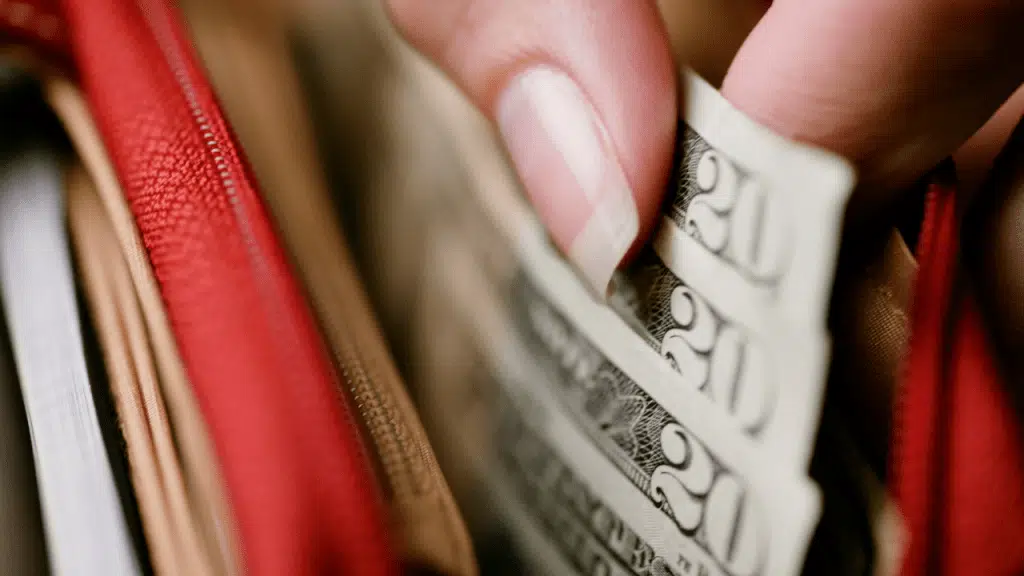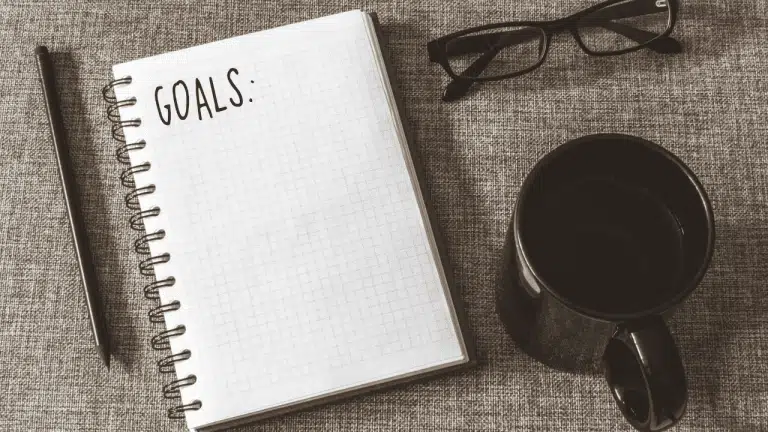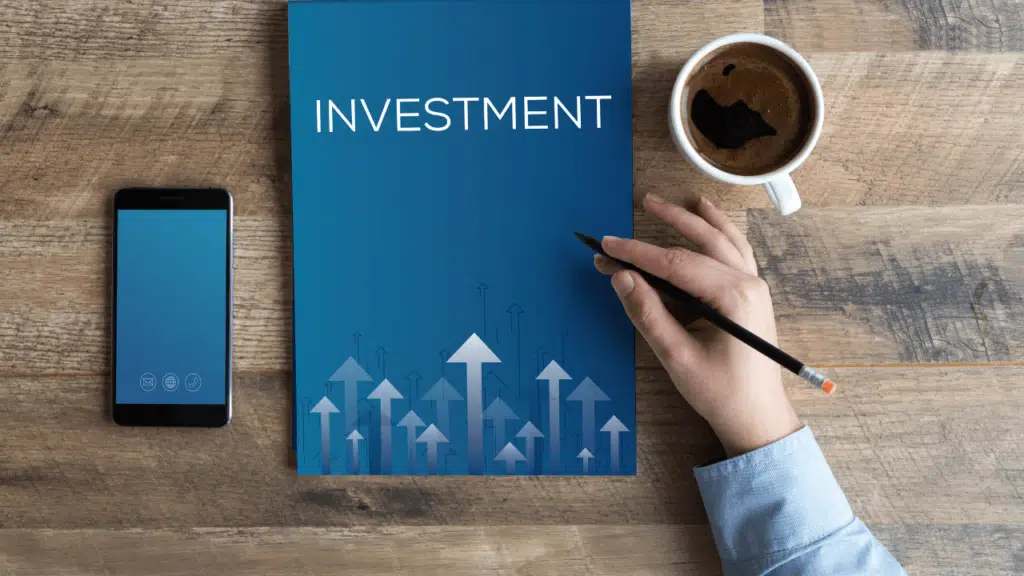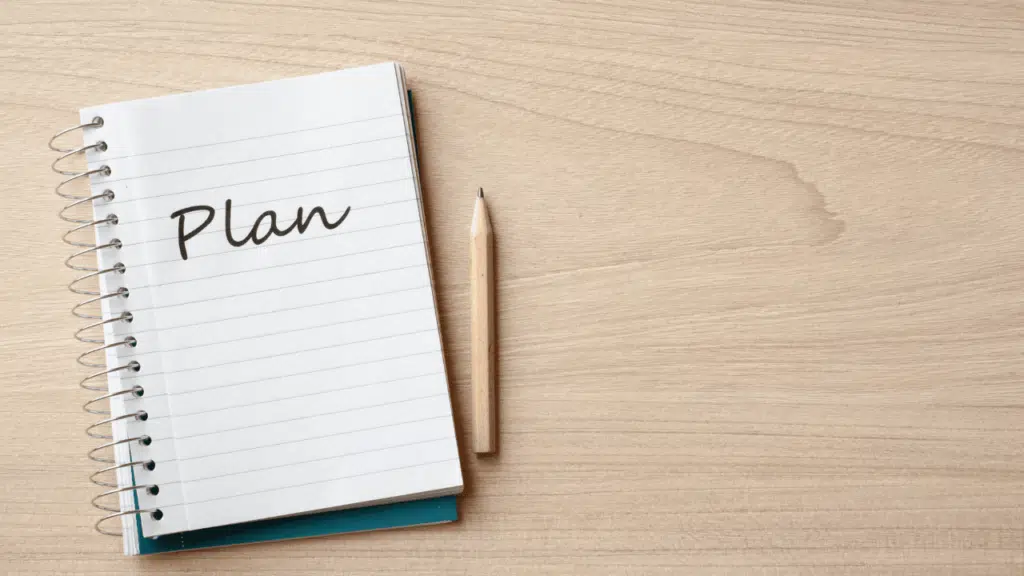It's no secret that people who are broke and poor often have bad money habits. But what can we do about it? How do we change our ways to get out of the cycle?
This article will give you 20 examples of bad money habits that keep people broke and poor and how to break these bad money habits, so you can start building your wealth!
How Bad Money Habits Are Created
Bad money habits are created when we don't know how to properly handle our money. Bad habits tend to compound when they aren't dealt with. If you continuously make bad financial decisions, it becomes harder and harder to break the cycle of living paycheck-to-paycheck (or even worse: relying on credit cards).
Not having a savings account and spending like you have too much money contributes to bad financial habits. Bad spending habits will cripple your financial goals.
Your financial status will not change if you do not learn how valuable good habits are. Let me tell you, you’ll want to learn and implement these habits if you want to understand how valuable financial freedom is.
How to Create Better Habits
To work on creating good financial habits, focus on building a budget (it doesn’t have to be complicated) debt payoff and building wealth through side hustles, investing and saving more money.
There are so many good resources online you don’t need to meet with a financial advisor until you have some wealth.
Try to keep monthly expenses as low as possible, so that you can pay off debt faster and be debt-free. This does not happen overnight, but it is certainly possible to improve your financial life.
This is why people who are not well versed in personal finance often stay broke and poor for their entire lives. They never learn how to manage money or create wealth because they lack education about personal finance. This is how bad financial habits and bad spending habits can be created and passed down for generations. Break that bad cycle!
If you have bad financial habits you may also deal with impulse purchases as a result of an emotional reaction. Your bank account will not thank you and there is no free money.
Habit #1: You Don't Have a Budget
This is one of the bad money habits that need to be broken. You need a budget to know where your money is going, and what you can do with it!
Ready to make your first budget?
Enter your email and get the free template
If you don't have a budget, you don't know how much money you're earning, spending, or saving. You'll never know how much you're making, and where your money is going.
Make a budget. It's the first step to breaking those bad money habits.
You can use this easy-to-use budget template I created for you. Also, watch this video where I go through step-by-step how to use the template for your situation.
Also, don't forget to update your budget as your financial situation changes. Twice a year is fine.
Make sure that you plan for an emergency fund in your budget to cover unexpected expenses.
How I make $11,000 per year renting out my spare rooms?
Get access to my FREE guide now.
You can have the money transferred automatically out of your bank account every month into your emergency so you don’t even have to worry or think about it. Automate everything you can. Automation saves me at least 5 hours a month. That’s 60 hours per year I can spend doing things I enjoy, not dealing with money.
Habit #2: You Don't Pay Attention to Your Spending Habits
You need to know where your money is going. If you don't, then you'll never be able to save any of it. If you’re spending money recklessly without paying attention to how much you should be spending, that can lead to debt and financial stress.
Identify the unnecessary costs in your life – what are those things that are costing way more than they should?
Emotional spending and making impulse purchases can negatively affect your financial well-being. Shopping online is an endless black hole when it comes to impulse spending. There’s always a sale going on, always.
You can't always change how much you earn, but you can change how much you spend and you will be amazed at how quickly you will save money when you start paying attention.
Habit #3: Buying Cheap Instead of Investing in Good Quality Products When Necessary
The saying “you get what you pay for” is oftentimes true.
It's better to buy one quality item that will last years than five flimsy bad-quality items that won't last a year each. It might cost more initially, but it'll save you money in the long run.
You're also less likely to lose something that costs more.
Habit #4: You Have Vague Long Term Goals
Your goals need to be specific and clear. You can't just say that you want to add to your savings accounts or be rich. Those are too vague.
What exactly do they look like? How much will it cost? When does this goal need to be accomplished for it to be a success?
Without these solid answers, your bad habits won't change – and neither will anything else about your life. So make sure all of the above is answered so you know what you’re working towards.
Habit #5: Not Investing Money
Saving money is one of those great money habits. But you need to know if your money will grow over time, and how much it'll be growing by. That is why it is a good idea to invest money as you save money. This investment can go towards stocks, tangible assets like commodities (gold or silver, cryptocurrency or even your retirement account balance.
This habit can also cause problems for those who aren't saving at all – which we talked about earlier.
When you invest the extra money that comes in every month or year (after paying bills and debts), then it starts working for you in earning compound interest. Investing means putting your money somewhere where it's likely to grow over time.
Habit #6: You Incur Credit Card Debt
Credit card debt is almost always bad.
Credit card companies will hit you with high-interest payments if you don't pay them off in full each month. This is the reason credit card companies emphasize the buy now, pay later idea.
A major emergency like an accident or a lost job can cause someone to fall behind on their payments, which can lead to long-term credit card debt.
It creates this vicious cycle of accumulating credit card debt while trying desperately to catch up with minimum monthly payments all while paying interest fees. You need a plan of attack when it comes to bad debt. The best thing you can do is prepare with an emergency fund so you can avoid this credit card debt.
Habit #7: You Don't Have a Financial Plan
You need to have a plan. Without one, you're going with the flow, and that will get you the same result as most, financial stress.
A plan tells you where you are now (income, expenses) and what needs to change (spending less than you make/debt repayment) for it to work out successfully.
Once it's set up, stick with the plan even when something bad happens along the way. Having a plan will help you be prepared for those speed bumps along the way of life. They happen to us all so it’s best to be ready.
Habit #8: You Think Negatively About Money
Whatever your thoughts about money are, that's what will happen in your life. If you believe that it'll never work out for you or that it just isn't there, then guess what? That's exactly how things will play out.
Whether you think you can, or think you can't … you're right. – Henry Ford
Change those negative beliefs by believing positive ones instead – even if they're not true yet. This can be anything from “I make more than enough money each month” to “I am financially successful.”
Keep repeating these over and over until they become part of who you are and watch as everything starts changing around you too. We attract what we are. Focus on becoming the best version of yourself and improving a little bit each day.
Habit #9: Not Tracking Expenses
You need to know where your money is going.
If you don't track expenses, then how do you plan on cutting back or increasing spending in specific areas?
If you are spending excessively in one category, you wouldn’t know. That’s a big problem if you say you want financial freedom. You may be planning on putting money into savings, but you may not have any left if you aren’t tracking expenses and paying attention to your financial goals.
This bad habit causes many people to make the same mistake over and over again- not knowing what they're doing wrong until it's far too late.
Tracking your expenses is one of the money habits that is most important especially when you want debt freedom.
Habit #10: Constantly Upgrading Electronics
This is more of a general bad habit that ties into saving money.
If you constantly upgrade your technology, then it's likely that you'll fall behind on the next big thing soon after upgrading-and this costs money!
Instead, try to stick with what works for as long as possible without spending too much on new gadgets.
My first job was at a pawn shop. I learned that a lot of times used items work as well as new and cost a lot less. I have bought a refurbished phone several times and have saved a lot of money doing so. Buying the newest phone is cool for about 6 months until they release the next one.
Habit #11: Impulse Buying
Impulse buying is very bad.
It's an instant gratification habit that's done without thought, which means it hurts many people financially-especially those who are already struggling with money or living paycheck to paycheck.
This can be anything from a new pair of shoes or anything else you don’t need. Count how many pairs of shoes you have right now, how many are there? Correct answer: enough.
Another trap of impulse spending is payment plans. With pretty much every online retailer, you can set up a payment plan to pay off a product if you do not have the money upfront. It looks like an attractive option because the payments are low, but you have to stop and think.
If you can’t afford to pay for a $30 shirt upfront, why don’t you put some money into your savings account instead and buy it when you can afford it upfront. This prevents you from locking yourself into monthly payments. Going into debt for anything you buy impulsively is silly.
Habit #12: Using Credit Cards to Earn Points/Cash Back
Credit cards can be helpful only if used correctly.
However, many people don't use them in the right way and end up paying tons of interest fees or not getting much back at all from their purchases because they never bother to cash out points/cashback rewards. Paying 20% APR and receiving 1.5% cashback is a losing effort and will discourage you to save money.
Rewards encourage spending because it feels like free money, but that’s just the way that they trap you into spending more and more.
Using a credit card is like using fire. Fire can be used to cook your food or it can be used to burn down your house.
Choose wisely.
Habit #13: Taking on Interest-Free Loans
It might be tempting to take on interest-free loans from friends, family or a 0% introductory credit card. It's something that many people do because they need a little extra help.
This is one of the worst money habits you can have, though. It encourages bad spending and borrowing decisions going forward because there are no real consequences for taking it…until later when all the interest charges come due. Only take a 0% loan that you know you can pay off before the interest hits.
And if possible, don’t borrow from your family unless you have a swift repayment plan. Years ago I borrowed money from my family and it turned out to alter my relationship with them for some time. I won’t do that again.
Habit #14: Only Paying the Minimum Payments
Credit cards are one of the biggest forms of debt in America today.
However, many people only pay the minimum payment due every month. This adds up to spending a lot more money than what you first thought.
Only use a credit card when you can pay off the balance in full each and every month. Once you start carrying a balance it can be hard to stop that cycle of debt.
Habit #15: Relying on Only One Source of Income
This is a common issue for employees as well as freelancers and self-employed people.
It's easy to only rely on the money that comes in from one source as this is what’s programmed into us at an early age. Go to school and find a job.
This means that if something happens like your business starts to slow or you’re fired from your job life can become sour really fast.
Most millionaires have 7 streams of income and most non-millionaires have only one. See the difference there?
Whether it be a side hustle like blogging, a part-time job locally, or renting out your spare bedroom you want to focus on upping your streams of income like right now.
Keep Reading: How to Rent a Room to the Right Person: Success Guide
Habit #16: Not Learning From Past Mistakes
To make better future decisions, you need to look at your current mistakes (and success) and learn from them.
People tend to repeat mistakes over and over again without learning anything in the process-and they wonder why their financial situation is always a mess.
Ask yourself, have I encountered a problem like this before?
If you can learn from your mistakes the first time and choose better you will be moving in the right direction. Always remember to humble yourself and if you are unsure what to do in any situation ask for help.
Many times in my life I have been at a crossroads and didn’t have anyone I could ask for guidance. This is where my mentors came into play. I’m not talking about mentors I could call, I’m describing mentors I have read.
Several books have made a significant positive impact on my life. I encourage you to seek out the answers to your questions by searching for someone who has done it before and had success. This is how you will be successful in a shorter period of time.
Related: 3 Best Personal Finance Books For 20-Somethings
Habit #17: Living Above Your Means
Living above your means is a huge part of many financial issues.
This happens when people spend more money on things than they actually have, which leads to them using credit cards or loans to make up the difference.
Remember, no one cares about your designer handbag or that you eat brunch at a nice restaurant.
That one attitude has saved me many thousands of dollars throughout my life. If I like something because I truly enjoy or benefit from it, I will consider buying it. If I can sense myself doing something for the status of it, I will steer clear.
Seriously, no one cares.
Habit #18: Having a Scarcity Mindset
Scarcity mindset is something that happens when people are constantly worried about running out of money.
This fear leads them to spend more than they should, hoard what little cash they do have instead of investing it for the future, and avoid making change because it is risky and uncomfortable.
Even when there's some pain along the way of positive change you’ll thank yourself for doing the work to improve.
I’ve adopted this mindset.
If I am scared about doing something I take that as guidance that I probably need to do it.
This sucks at the moment. I won’t lie. After doing this throughout my life it becomes easier to take that leap of faith. Take that first step, that’s the hardest thing.
Habit #19: You Live an Unhealthy Lifestyle
Living an unhealthy lifestyle is one of the best ways to destroy your finances.
This usually means not eating healthy, sleeping too much or too little and not prioritizing your health in general.
You know what I’m talking about if you fall into this category. That little voice in your head that says wake up at your alarm that you keep snoozing to exercise at the gym you haven’t seen in months.
Listen to your conscience and act upon it.
Habit #20: You're Paying Too Much in Taxes
If you feel like this might apply to you then start learning about how different types of investments work and what sorts of tax benefits/penalties are out there so you can keep your hard-earned cash instead of giving it away.
Conclusion
Having bad money habits can keep you broke, but not forever.
When you're trying to get ahead in life, you must keep track of your money and make sure things are going correctly.
If not then there might be a problem…but the good news is these issues can usually be fixed with some changes!
Learning how to create a successful budget, not overspending, and learning where to invest your money are a few of the great ways you can create better money habits and build wealth.
So what are you waiting for? Start making these changes today. Your future self will thank you.
How I make $11,000 per year renting out my spare rooms?
Get access to my FREE guide now.











